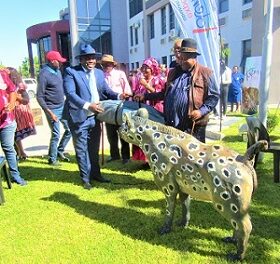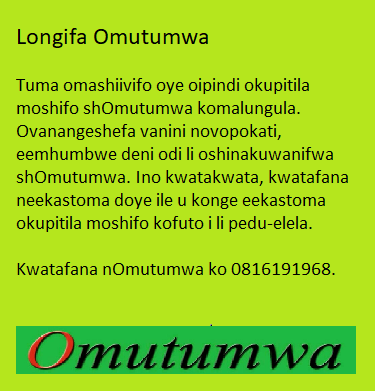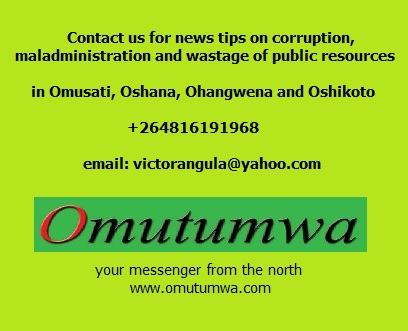The Namibia Revenue Agency (NamRa) may not spare Chinatown in the agency’s drive to put an end to the importation of counterfeit products.
With the ongoing public outcry after NamRa announced that it has destroyed counterfeit (fake) goods worth N$5 million which had been imported by locals, NamRa may start to take drastic action on Chinese shops.
However Mr Steven Yarukeekuro Ndorokaze, the chief strategic communications and support engagements officer could not state clearly that Chinatown will not be spared but he just said that something will be done.
“Without being specific about a particular market, NamRA intends increasing the enforcement of the relevant statutes. As expected, we can’t reveal how often we have been or are going to do our inspections [at China shops], suffice to say that our presence will be felt,” Ndorokaze said in response to the question of how often does the agency go to Chinatown to confiscate counterfeit goods.
As to whether NamRa has in the past engaged in public education regarding the unlawfulness of engaging in the importation of counterfeit products, especially those bought from online shops, Ndorokaze said,
“Yes, there were many operations carried out by the former Directorate of Customs and Excise in the past, together with other role-players, which included education on the applicable laws.
“As NamRA, we intend to intensify taxpayers/traders education going forward.”
However Ndorokaze stated that the goods which were recently destroyed had been confiscated “by our customs officials at various entry points. It’s a myriad of products and we are not aware of there being any factual doubt regarding them being counterfeit.
“The destroyed goods are classified as counterfeit goods, meaning that they were manufactured or sold under another brand name without the brand owner’s authorization.”
Ndorokaze did not explain the methods used in determining that the manufacturing of the goods with certain brand names was not done with the brand owner’s authorisation, or how could a buyer determine that a certain good in an online shop was not manufactured with the brand owner’s authorization.
In the photo: Mr Steven Yarukeekuro Ndorokaze.








